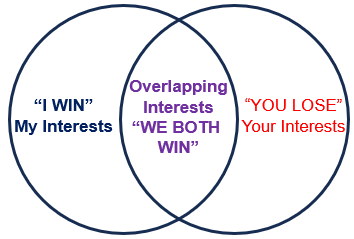
Zero-sum bias is when the losses or gains of other participants exactly balance one participant’s gain or loss.
Nobody wins in the long term when one party believes that the only way, they benefit in a business transaction is when the other party loses. Those who hold this belief rarely build a healthy amount of repeat sales because they fail to provide a value greater than the cost of doing business with them.
Overview
The term “zero-sum bias” has its roots in the misperception that the total amount of wealth, resources, or value is constant and that an equivalent loss by another participant must offset any gain by one participant.
Where Zero-Sum Bias exists, it negatively influences decision-making, leading people to believe that in any given interaction or business deal, one person’s success comes at the expense of others. This mindset hinders collaboration and cooperation, as individuals remain less inclined to seek mutually beneficial solutions, often referred to as win/win.
Yes, in business, there are many individuals who seek to enter into win/lose deals because they falsely believe that they only win if the other party loses. Negotiations with people holding this view lead to lose/lose or no deal at all. What they miss is that both can win when a business transaction benefits both parties.
Overcoming zero-sum bias involves recognizing the potential for positive-sum outcomes where all parties involved can benefit. Holding this perspective in business is important for fostering cooperation, problem-solving, and in negotiating the exchange of money that serves a need or satisfies a want.